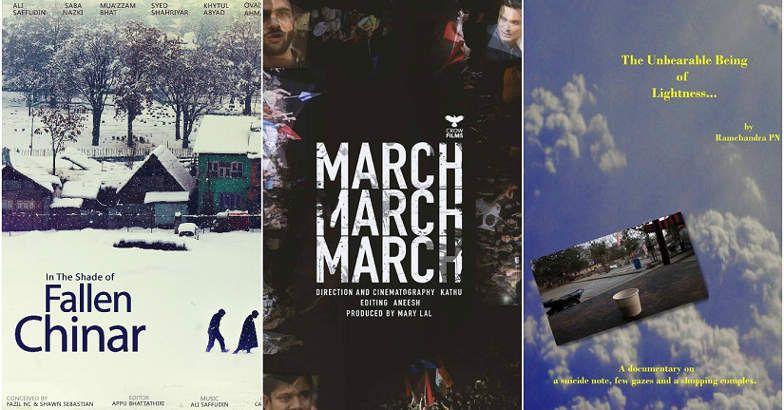The Kerala High Court has dismissed a petition filed by the makers of In The Shade of Fallen Chinar and March March March, two of the three short-films which were banned at the International Documentary and Short Film Festival of Kerala (IDSFFK). The High Court termed the petition “unmaintainable”.
The makers of the films had approached the court in an attempt to overturn the ban imposed by the Union Information and Broadcasting Ministry. The makers had stated in their appeal that the movies were banned without “assigning reasons”.
As per a report in Manorama Online, the censorship practice of the Central Government appears to have affected the current edition of IDSFFK. The report argues that the ban has reduced the visibility of movies which covered important issues like Kashmir unrest, the JNU protests, and the suicide of Dalit student Rohit Vemula.
The High Court stated that the organisers of the festival, Kerala Chalachitra Academy, had appealed against the ban. The decision is said to be pending. High Court judge PB Sureshkumar said in his ruling, “I do not feel it appropriate to deal with the contentions raised by the petitioners as to the sustainability of the impugned decision. The writ petitions, in the circumstances, are dismissed.”
Recommended
The movies could have been banned on the grounds of internal and external security. Section 9 of the Cinematograph Act, 1952 reads, “If the film impinges on the security or integrity of the country or affect law and order or affect relations with other countries.”
In the Shade of Fallen Chinar, directed by Shawn Sebastian and Fazil NC, was filmed in the Kashmir valley a month before Burhan Wani was shot dead, March March March is based on the JNU student protests, and The Unbearable Being of Lightness was about the suicide of Dalit student, Rohit Vemula.
Pic: Manorama Online


